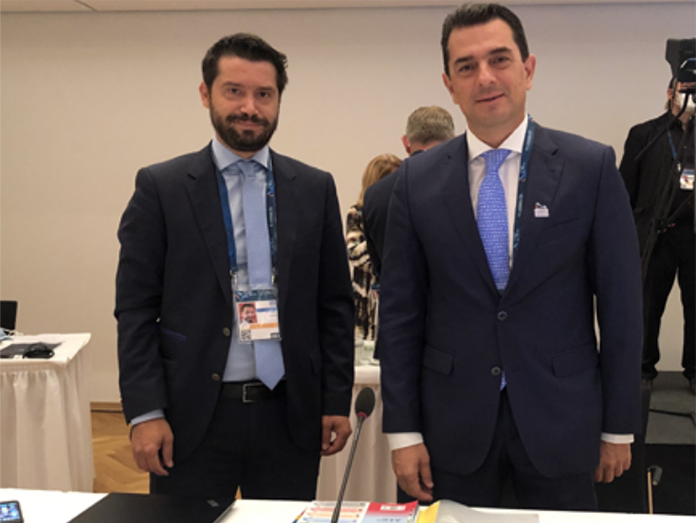
The issue of transparency regarding the origin of food and in particular the labelling of the geographical origin of meat and dairy was among the many issues discussed at the Informal EU Agriculture Council, which took place a few days ago in Koblenz, Germany.
The Informal Council was attended by the Deputy Minister of Rural Development and Food, Mr Kostas Skrekas and the Secretary General of Agricultural Policy & Management of Community Resources, Mr Konstantinos Baginetas, who developed the Greek positions on the issues raised. In particular, the effects of the coronavirus pandemic on agricultural production and the supply chain, the improvement or extension of labelling rules related to the geographical origin of food to new products, the possible introduction of a pan-European animal welfare label and the possibility of introducing stricter rules regarding animal transport to non-EU countries, were discussed.
Regarding the issue of indication of the geographical origin in food, Mr Skrekas said that transparency in the food supply chain is a constant consumer demand and recalled that Greece has already adopted such mandatory measures for dairy products on a national level with impressive results. Furthermore, the Deputy Minister stated that the national measures adopted in the EU have not hindered the functioning of the European market, nor have they been hindered by the World Trade Organization, despite the reactions of some countries.
The Greek position
“Greece considers it appropriate to align the legislation at European Union level, for a common mandatory labelling of the origin of the primary ingredient, mainly for milk and dairy products, meat preparations and one-ingredient products, such as table olives,” suggested Mr Skrekas. “This way, traditional EU food is protected, consumer confidence is strengthened, producer income and local communities are supported, whereas inspection authorities are facilitated in their work to combat fraud.”
Mr Skrekas stated in his remarks that the overall issue at stake is for the agri-food sector to remain durable and functional, in order to continue the production of quality food in a stable way, especially in times of crisis. In this respect, he added, it is necessary to design and implement at European level a common strategic approach that should be followed in times of crisis by the countries of the European Union on key issues, such as employee turnover and inputs within the EU.
Finally, among the Greek Deputy Minister’s remarks was also a reminder that Greece strongly supports the good treatment of farm animals and the need to provide them with decent transport conditions. Mr Skrekas concluded by stating that a possible amendment to the existing legislation should take into account the best available scientific knowledge on the subject and consider all aspects of transport, such as the climatic conditions in Europe and beyond.
READ MORE: European Union


















